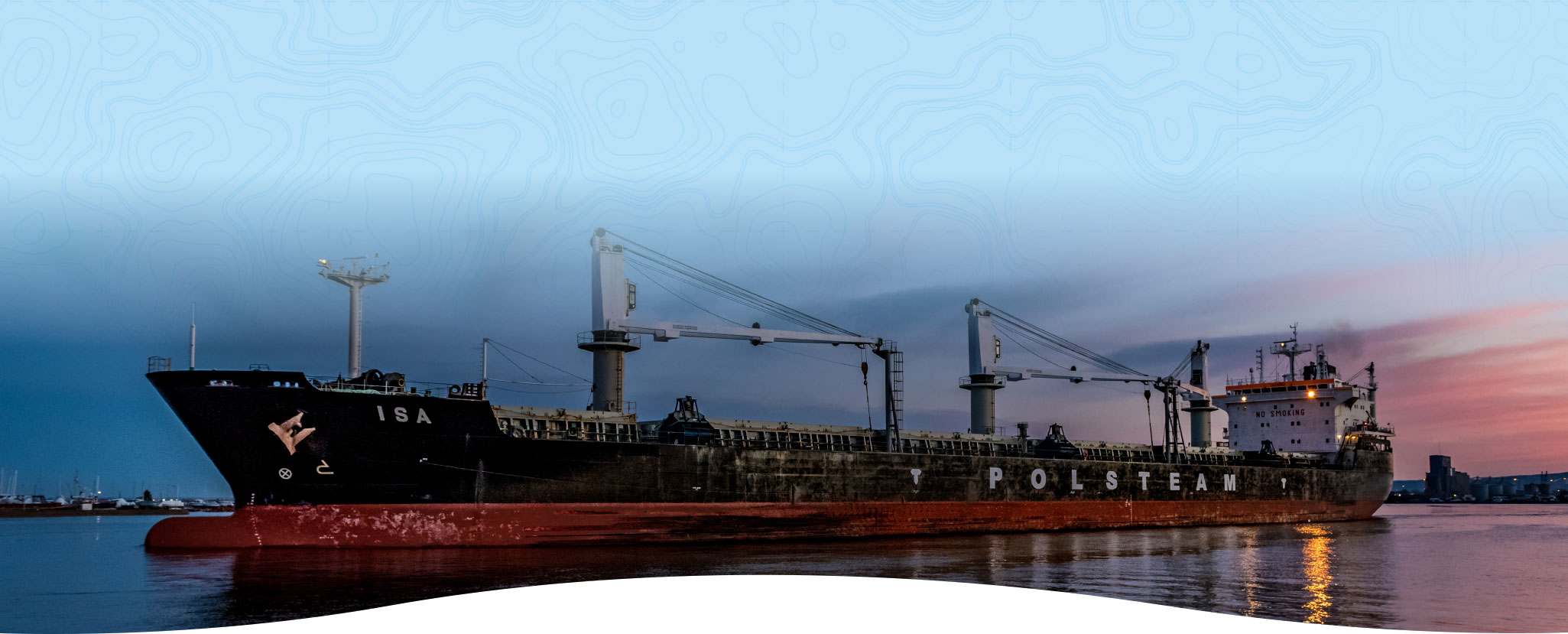
DULUTH, Minn. — The 2020 Great Lakes commercial shipping season opened this week, as the vital flow of goods and raw materials began transiting the locks at Sault Ste. Marie, Michigan, gateway between Lake Superior and the lower lakes.
This marine highway, in connection with the St. Lawrence Seaway, provides an essential transportation service that moves more than 200 million metric tons of cargo annually. It supplies North America and the world with materials that sustain life and drive the economy: grain for food, iron ore for steel, stone and cement for construction, coal and project cargoes for power generation, plus salt, sand and a variety of other important goods.
These cargos are critical to helping the region and the world weather the COVID-19 pandemic. Federal and state governments recognize the critical importance of Great Lakes shipping by including the sailors, dock workers, and other key support personnel on the list of workers essential to the United States and Great Lakes economy.
“A tremendous team focus has gone into getting the fleet outfitted and sailing safely with healthy crews. This has been a truly concerted effort by the sailors, the vessel operators, U.S. Coast Guard, Centers for Disease Control, U.S. Army Corps of Engineers, public health officials, the Great Lakes dock and port operators, and service providers that keep our fleet sailing,” said Jim Weakley, president of the Lake Carriers’ Association.
These agencies, in cooperation with the shipping industry and U.S. Customs and Border Protection, are taking strict steps to keep crews and communities safe as the flow of maritime traffic begins amidst the COVID-19 pandemic. Among them:
- Approval to embark or disembark pilots and crew could be limited at the discretion of the U.S. Coast Guard, U.S. Army Corps of Engineers and Centers for Disease Control.
- All pilots and crew must be monitored for COVID-19 symptoms and 96-hour advance notice of any suspected cases must be provided to the lead agencies and control centers prior to inspectors boarding the vessel.
- Ships underway on Lake Superior are required to immediately contact the U.S. Coast Guard or the CDC’s Minneapolis Quarantine Station regarding any suspected COVID-19 cases or symptoms.
The lead agencies (U.S. Coast Guard, Centers for Disease Control, U.S. Army Corps of Engineers) enacted these and other protocols to reduce risk, and they will actively monitor the situation throughout the shipping season, including after the Seaway opens to oceangoing traffic on April 1.
During these challenging times, ships and seafarers play a critical role in keeping global trade routes open by delivering important goods and materials throughout the world. Preserving their health and well-being, as well as the health and well-being of shoreside citizens, is a top priority.
As borders close to non-citizens and protective measures are enacted, it is important to remember that international seafarers constitute a low-risk group for contracting COVID-19, as they spend most of their time at sea isolated from the global community. Nevertheless, ship owners have preventative hygiene protocols onboard to protect the health and safety of their crews during long voyages.
Seafarers are on the front lines of this crisis, as they work to deliver indispensable goods and materials crucial in responding to and eventually overcoming this global pandemic.
Media with questions or concerns regarding COVID-19 as it relates to commercial shipping should contact the U.S. Coast Guard (tele: 202-372-4630) and Centers for Disease Control (tele: 404-639-3286).

